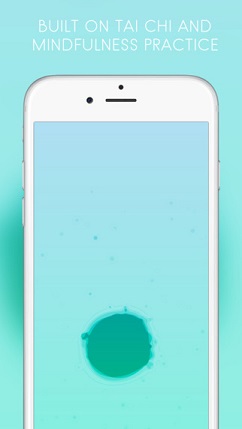
Some 44% of Britons suffer from stress according to a major 2013 study by BUPA; of these 28% say they have been feeling that way for over a year. That’s a lot of people. No wonder, then, that stress and anxiety are the two biggest causes of sick leave in the UK, costing Britain around £6bn a year.
Modern technology is one of the main contributing factors to this morass, allowing our working lives to bleed into every waking hour. “With modern day technology, the borders of our work-life have blurred and turned our previous 40 hour work week into 24/7 ordeal,” wellness expert Dr Michelle K Nielsen told The Huffington Post.
There are, of course, many medical methods for dealing with stress, from drugs to therapy. But given the scale of the problem it would be virtually impossible for current health systems to fully address it. So can technology help to get us out of the same stress mess that it has planted us in?
Yes says Yannick Loop, CEO of Psy@Work, a Barcelona company that “combines technology and psychology in order to deal with the growing issue of work-related stress and burnout”. The company’s products include myCoach, a “prevention and management programme for work-related stress and associated conditions, like burnout, anxiety and depression”, according to Loop (speaking to Mobile Health Global).
The myCoach programme consists of two stages: the user takes a test to determine if they are stressed at work; if they are, myCoach will then guide them through a year-long plan of weekly sessions and daily exercise to reduce that stress level. Psy@Work’s tools are, according to the company, “extremely cost-effective”. And yet with access to an online psychologist 24/7 myCoach is most likely not going to be cheap.
For those on a tight budget, though, fear not: there is a bewildering range of anti-stress apps on the market, many of which are free. Broadly speaking, these fall into two categories: the theoretical, which want to find out exactly what is stressing you out, and the more practical, which focus on specific exercise or activities to help you de-stress.
My Stress Kit, developed by insurance giant Aviva falls into the former category. The free app includes a quiz to log the causes of the user’s stress, making it easier to identify which types of pressure affect them most and find ways to deal with these situations. It also includes a bank of “stress tips” that it says “could help lower the pressure, and relieve the symptoms of stress that you’re feeling”.
The <30 Days app from the Heart and Stroke Foundation of Canada is similarly clinical. While not a stress app as such, it can help users to lower their stress levels as they work towards the wider goal of reducing the risk of heart disease. The app suggests various challenges for users to improve their health in a 30-day period, one of which is “let it go”, encouraging them to free themselves of the stresses of everyday life.
Tester Ann Douglas told Global News Canada, “I have never used a health app that customises what your goals are and then gives you challenges on that basis. So it knows that stress is a big deal for me … so it’s encouraging me to reach out for social support and choose my battles.”
The more practical stress apps can be a pretty esoteric bunch, offering everything from meditation to better breathing to life goals.
PAUSE, for example, is essentially a malleable stress ball for the digital age. To the sound of soothing ambient music, the user is encouraged to place their fingers on the screen. This creates a small shape, which they can then push across the screen as the music evolves. This, it claims, helps “trigger the body’s ‘rest and digest’ response, quickly helping you regain focus and release stress within minute”.
Peng Cheng, the app’s founder, told The Next Web that the idea came about when his own battle with depression and anxiety made him unable to work. “PAUSE is the result of rethinking touch on a smartphone and we believe we have created a simple and effective tool which will help many people take control of attention and energy anytime, anywhere,” he added.
Early feedback on the App Store has been promising. “The first time I used it, I was frustrated because I felt like the blob expanded too fast, like it was giving too many directions, etc,” says ‘ijustgetbored’. “I realised that was my mind focusing too much on the details of the app and being distracted from mindfulness practice: once I let all that go and let myself fall into the soothing aspects, it worked beautifully.”
If you think PAUSE is slightly, well, hippy, then consider Happify, an app that wants to “elevate your happiness and feel better about your life”. The user is encouraged to pick a specific goal – one of which is “cope better with stress” – and is then given a four-week “happiness track” to work towards their goal.
Does it work? Well, it’s got strong media reviews, from CNN to the New York Times, and it claims that 86% of people who use Happify regularly “report feeling better about their lives in two months”.
From there, it’s just a short skip to the US military.
No, seriously: even the US Department of Defence has got into the anti-stress business of late, through its National Centre for Telehealth and Technology, whose goal is “to lead the innovation of mobile health and telehealth solutions to deliver psychological health and traumatic brain injury care”.
The result is the Breathe2Relax app,“a portable stress management tool which provides detailed information on the effects of stress on the body and instructions and practice exercises to help users learn the stress management skill called diaphragmatic breathing”. Users can record their stress levels on screen and the app will also lead them through breathing exercises designed to help with stress, mood stabilisation, anger management and anxiety.
Joking aside, these are strange bed fellows indeed, an anti-stress world where hippy ideals rub up against the US military machine.
But perhaps we should not be too surprised. Stress, as the BUPA study suggests, can affect nearly everyone. And if stress sufferers include everyone from army generals to yoga teachers, then the solutions should also reflect a variety of lifestyle choices.
And who knows? In the end, we might all win.
